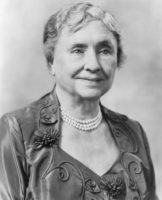Podcast: Play in new window | Download
Subscribe: RSS

“Leaders Earning Respect”
“Sit down and shut up!” the staff member yelled.
50 juvenile offenders in the San Diego County Probation Department were angrily milling around the room, refusing to obey orders. The institution’s regimen had been designed to prevent such unauthorized gatherings, but the staff on duty had been lax in their supervision, and now the young men had been quick to rebel and take advantage of the situation. Now the staff were working hard to bring this mutinous assemblage under control.

I had just finished a counseling session in that part of the institution when this incident took place. I originally thought that the two staff members, both of whom were former athletes, could handle the young men, but when I saw the extent of the young men’s defiance I realized how volatile the situation was quickly becoming. The tension continued to rise until another staff member entered the room, sized up the situation, and yelled, “Sit down!” 50 young men immediately dropped to the floor and shut up. I was astonished by that display of power.
Seconds before, the room had been embroiled in a conflict, and now because of one man’s intervention, the situation was under control. What was it about that staff member that gave him such authority? It certainly wasn’t his appearance. He was under six feet, overweight, middle aged, balding. He looked more like a college professor than a correctional officer, yet an influence over those young men that had been remarkable.
During the 1944 Allied invasion of France, the troops on Utah Beach had been immobilized for hours, because of a murderous artillery barrage from the Germans. What finally got the Allied troops moving again was one officer who stood up and yelled, “Two kinds of people are staying on this beach, the dead and those who are going to die.” That did it. The deadlock was broken, and in the next 24 hours, 17,000 men and 50,000 vehicles came ashore. That quote comes from an article in Newsweek magazine’s May 23, 1994 edition, and the article is entitled D-Day: On the Move.
That Newsweek article went on to describe what it was about such leaders that made others willing to follow them. Something called character must be apparent in the leader. The followers must like him and want to be like him, or want him to like them. I knew that the aforementioned probation officer was well respected among his peers, but I had no idea how highly he’d been respected among the young men. The source of the young men’s respects stemmed from that officer’s ability to administer rules and regulations fairly amid the Byzantine forces that exist within a correctional institution. His power to command such respect was a direct result of a character he displayed in front of the kids.
The need for Christian leaders with such character is just as important in the ministry as it is in the military or in the field of corrections. Our churches are filled with clergy who are gifted in the areas of preaching, teaching, writing, music, counseling, administration and such. But those gifts are not worth much unless they are wielded by men and women who possess a type of character to make others want to follow them.
Helen Keller, in her journal, wrote,
“Character cannot be developed in ease and quiet. Only through experience of trial and suffering can the soul be strengthened, vision cleared, ambition inspired, and success achieved. How we respond to the trials and sufferings of life determines the depth of our characters.”
For clergymen, for clergywomen, this need for character strengthening is extremely important.
Henri Nouwen, in his book The Wounded Healer, wrote,
“The minister is called upon to recognize the sufferings in his own heart and make that recognition the starting point of his service. Whether he tries to enter into a dislocated world, relate to the convulsive generation, or speak to a dying man, his service will not be perceived as authentic unless it come from the heart wounded by the suffering about which he speaks.”
Incarcerated young people are not impressed by a Christian leader’s degrees, titles, or reputation. They want a Christian leader who’s also struggled with life and can bring some type of hope and comfort to what to them seems like insurmountable problems. Only a leader whose character has been strengthened by life’s struggles can properly do that.
We are blessed in Juvenile Hall to have several pastors of significant character to come in and minister with the young people there. A young man recently described to me the influence that one particular pastor recently had upon his life.
“I try to stay out of fights so I can go to church to hear Pastor Ralph. I always try to get in the front row. Everybody agrees not to fight when Pastor Ralph comes in, and so enemies end up sitting together until church is over. They need to cancel conflict management classes they make us go to, because they don’t work, but give us more time with Pastor Ralph.”
I thank God for a pastor like my personal friend Ralph and for other religious leaders who come into Juvenile Hall who are of equal character. The young people love them, look forward to church, and enjoy learning from them. Unfortunately, there’s never enough leaders to meet the needs. The young people in Juvenile Hall are precious to our Lord. He loves them dearly. Their problems are great. They’re looking around for all kinds of help and answers and often turn in the wrong direction. And that’s why it’s so important that not just the church be present in there, but the people who come in from the churches have the necessary character that when they speak, the young people will listen, take seriously what they have to say, and then begin to internalize the message.
